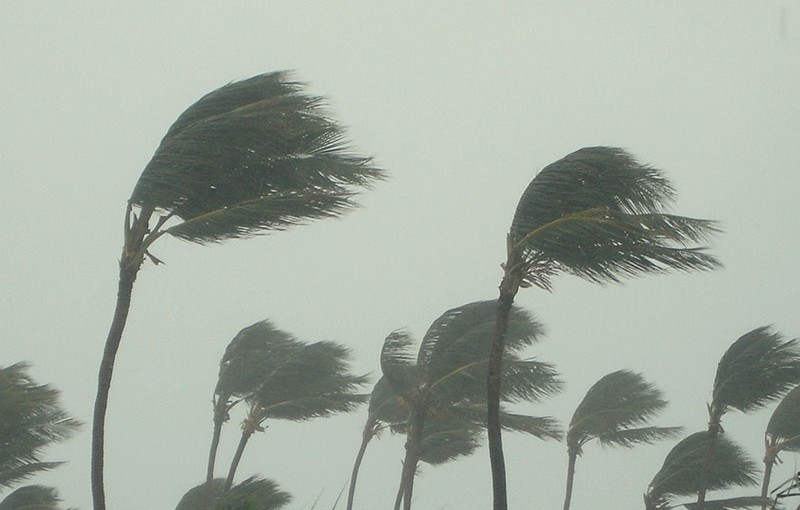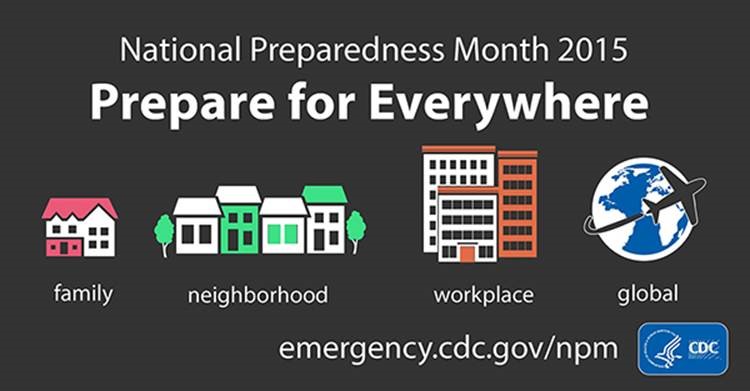Category: Emergency Preparedness
Hurricane Readiness

You can’t stop a tropical storm or hurricane, but you can take steps now to protect yourself and your family. If you live in coastal areas at risk, the Centers for Disease Control and Prevention (CDC) encourages you to begin preparing yourself for hurricane season. The Atlantic hurricane season is June 1 through November 30 Read More >
Posted on by Leave a commentNational Preparedness Month

Throughout the month of September, CDC and more than 3000 organizations—national, regional, and local governments, as well as private and public organizations—will support emergency preparedness efforts and encourage Americans to take action. For Preparedness Month 2015, the National Center for Environmental Health/Agency for Toxic Substances and Disease Registry (NCEH/ATSDR) supports the Office of Public Health Read More >
Posted on by 1 CommentClimate Change: Where do we go from here?
What are “Grand Rounds”? Grand Rounds are an important part of medical education that began as a way to teach medical residents new information and give them practice in clinical reasoning. Presenters focus on current or interesting cases or share new research. At CDC, the Public Health Grand Rounds are monthly presentations of major public Read More >
Posted on by Leave a commentHurricane Readiness
You can’t stop a tropical storm or hurricane, but you can take steps now to protect yourself and your family. If you live in coastal areas at risk, the Centers for Disease Control and Prevention (CDC) encourages you to prepare for hurricane season. The Atlantic hurricane season is June 1 through November 30 each year. Read More >
Posted on by 1 CommentDrought and Health

When rainfall is lower than average for an extended period of time, drought can occur. Some of the numerous and far-reaching health implications of drought include reduced quantity and quality of drinking water, diminished air quality, and increases in illness and disease. Cycles of drought have affected North America for the last 10,000 years. Droughts Read More >
Posted on by Leave a commentTracking Extreme Heat

CDC’s Environmental Public Health Tracking Network is a dynamic surveillance system that provides information and data about environmental hazards and the health problems that may be related to them. It presents what we know about where environmental hazards exist, where exposures happen, and how targeted action can protect health, reduce illness, and save lives. The Read More >
Posted on by Leave a commentKeep Your Cool in Hot Weather

Now is the time to prepare for the high temperatures that kill hundreds of people every year. Extreme heat caused 7,415 heat-related deaths in the United States from 1999 to 2010. Heat-related deaths and illness are preventable, yet annually many people succumb to extreme heat. Read More >
Posted on by Leave a commentStay Safe During Lightning

The consequences of lightning strikes are serious. Lightning is one of the leading causes of weather-related fatalities. During 2003–2012, lightning caused an average of 35 deaths per year in the United States. Read more about Lightning strikes and how to stay safe. Read More >
Posted on by Leave a commentTop 10 NCEH/ATSDR “Your Health, Your Environment” Blog Posts of 2014
As this year draws to a close, perhaps you’ve realized you didn’t get a chance to read all of the “Your Health, Your Environment” blog posts. To help get you into full catch-up mode, here are the ten most popular posts of 2014: Staggering Numbers: Do You Know the Disease? Are We Getting Enough Vitamins Read More >
Posted on by 3 CommentsEarly Winter Weather
While some sections of the United States have not yet seen their first snow, some areas have already felt winter’s icy blast. Winter weather presents challenges, but you can remain safe and healthy if you are prepared to meet them. Indoor Safety You may prefer to remain indoors in the winter as much as possible, Read More >
Posted on by Leave a comment